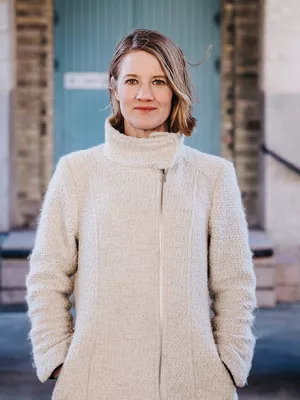
Tove Harnett
Docent

Feeling controlled or being in control? Apps for self-management among older people with neurological disability
Författare
Summary, in English
Material and methods: A qualitative research approach with a focus group methodology was used. The sample comprised 16 participants, 11 men and 5 women, with an average age of 64 years (ranging from 51–80 years). Six participants were diagnosed with multiple sclerosis, six with Parkinson’s disease and four with stroke. Data were analyzed using thematic analysis, which is a method for identifying, analyzing and reporting patterns.
Results: The results formed two themes. The first theme “using apps to have control of my health” comprises two subthemes; “monitor and take responsibility for a healthy lifestyle” and “compensate to facilitate everyday life”. The second theme “using the app as a tool and means for communication” also comprised two subthemes; “dare to trust the app” and “feeling safe when sharing information with health care professionals”.
Conclusions: The use of apps put increased responsibility on the person and had the possibility to make them more involved in their own care. The use of an app can facilitate a healthy lifestyle and help to monitor disease-specific symptoms. In order to be able to use apps for communication with the health care sector legislation and safety issues need to be considered.
Implications for rehabilitation
Apps can be used for self-management if they are safe and can be trusted.
People with neurological disabilities want to be involved in their healthcare and needs to be addressed by health care professionals.
The use of apps grasp over a wide variety of areas this is something that may be considered in health care and something that can be addressed by interdisciplinary approaches.
Ordinary health-oriented apps and disease-specific apps were used differently and for different purposes.
Avdelning/ar
- Aktivt och hälsosamt åldrande
- Socialhögskolan
- Certec - Rehabiliteringsteknik och Design
- Rätt och utsatthet
- Norma Research Programme
- Health Law
- Offentlig rätt
- Juridiska institutionen
Publiceringsår
2021
Språk
Engelska
Sidor
603-608
Publikation/Tidskrift/Serie
Disability and Rehabilitation: Assistive Technology
Volym
16
Issue
6
Fulltext
- Available as PDF - 975 kB
- Download statistics
Dokumenttyp
Artikel i tidskrift
Förlag
Taylor & Francis
Ämne
- Law
- Public Health, Global Health, Social Medicine and Epidemiology
Nyckelord
- Elder law
- Äldrerätt
Status
Published
Forskningsgrupp
- Active and Healthy Ageing Research Group
- Law and Vulnerabilities
- Norma Research Programme
- Health Law
- Public Law
ISBN/ISSN/Övrigt
- ISSN: 1748-3115

